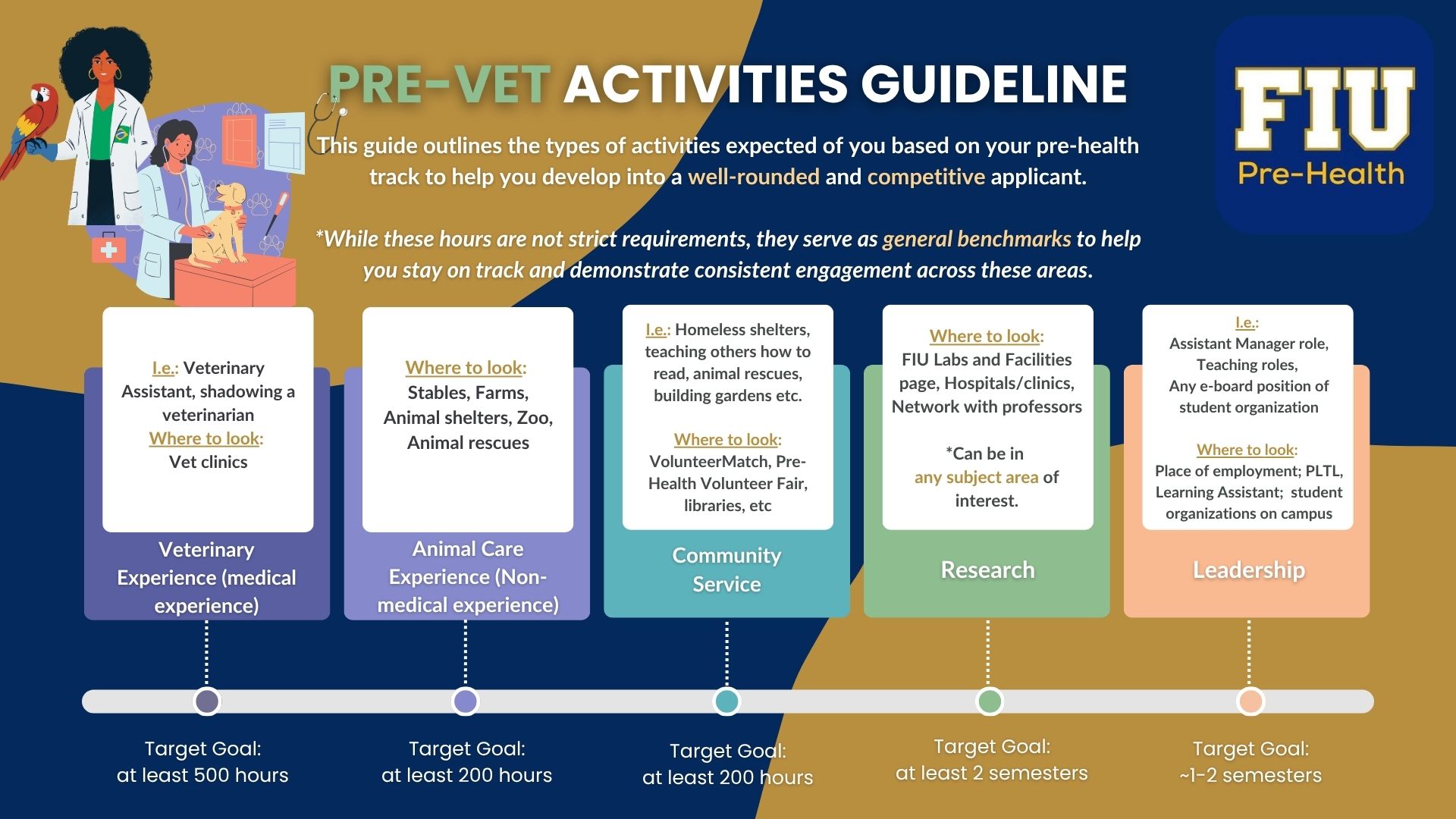Veterinary medicine programs generally expect students to have completed an undergraduate degree, and may specifically require a Bachelor of Science. Students must take introductory courses in chemistry, biology, physics, mathematics and animal science.
For more detailed information, review our Pre-Veterinary Prerequisite guide.
It is the responsibility of the student to check in with the various program applications for exact required coursework.
Being a competitive applicant:
Typically accepted students complete their degree with a GPA of 3.2 (overall and in science courses). Use our GPA Calculator Spreadsheet to see where you stand.
For the most up to date information, students are encouraged to review the Veterinary Medical School Admissions Requirements (VMSAR)
Application cycle information:
Students are also encouraged to begin thinking about their application timeline:


Most veterinary programs will not have a minimum requirement for experience. Competitive applicants are encouraged to include a variety of experiences with varying responsibilities on their application. It is highly suggested experiences are under the supervision of veterinarians which gives students the ability to shadow and eventually obtain a letter of recommendation.
Although you can enter any experiences within the last 10 years that you believe are relevant to your application, we recommend highlighting your experiences starting in high school, through college, and thereafter and checking your desired program's requirements regarding documentation. Enter only completed and in-progress experiences. Do not include experiences that are planned (i.e., have not yet started) or experiences that were completed in elementary or middle school.
These experiences can be broken down into the following categories:
Animal Experience (no Veterinarian involved) | Employment (not animal-required) | Extracurricular Activities |
| Research | Veterinary Experience (with a Veterinarian) | Volunteer (not animal-related) |
These FIU organizations may provide resources or networking opportunities for current students:
For an extensive list, please refer to Panther Connect.
Other Networking Opportunities:
Currently, there are only six schools that require the Graduate Record Examination (GRE) and one
school that is optional Most schools requiring the GRE expect the exam to be taken within the past 5 years and the official scores be available through the Educational Testing System. Please check with each program to determine their GRE requirements.
It is the responsibility of the student to verify if the GRE test is needed for admissions.
Test Preparation
Pre-veterinary students apply through the Association of American Veterinary Medical Colleges Application Service (VMCAS). A competitive application includes recommendation letters from faculty members and a veterinarian and experience with both large and small animals.
Students seeking a degree and career in veterinary medicine will find that admission requirements are highly competitive, comparable to those for admission to other pre-health professions. In part, the competitive environment is the result of the small number of programs.
The University of Florida in Gainesville, FL has a veterinary program. Some FIU alumni attend veterinary school at St. George's University, Grenada, which has an articulation agreement with the University of Florida.
Application Resources

